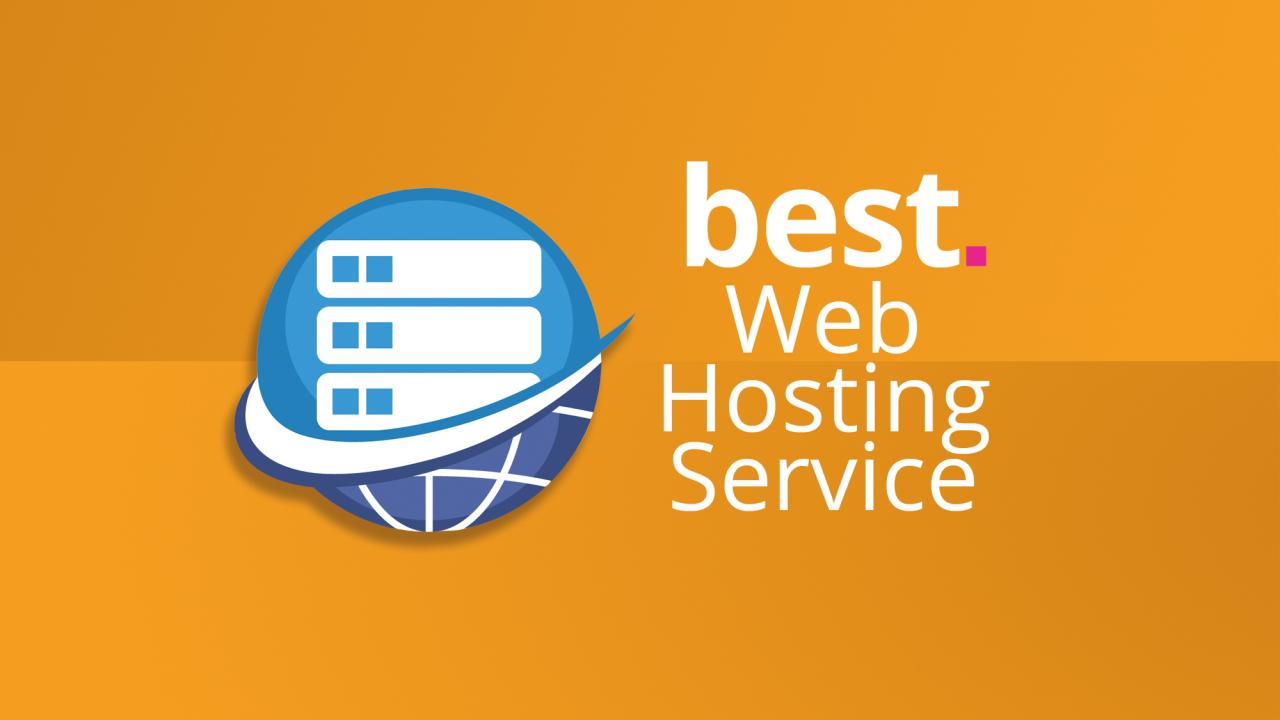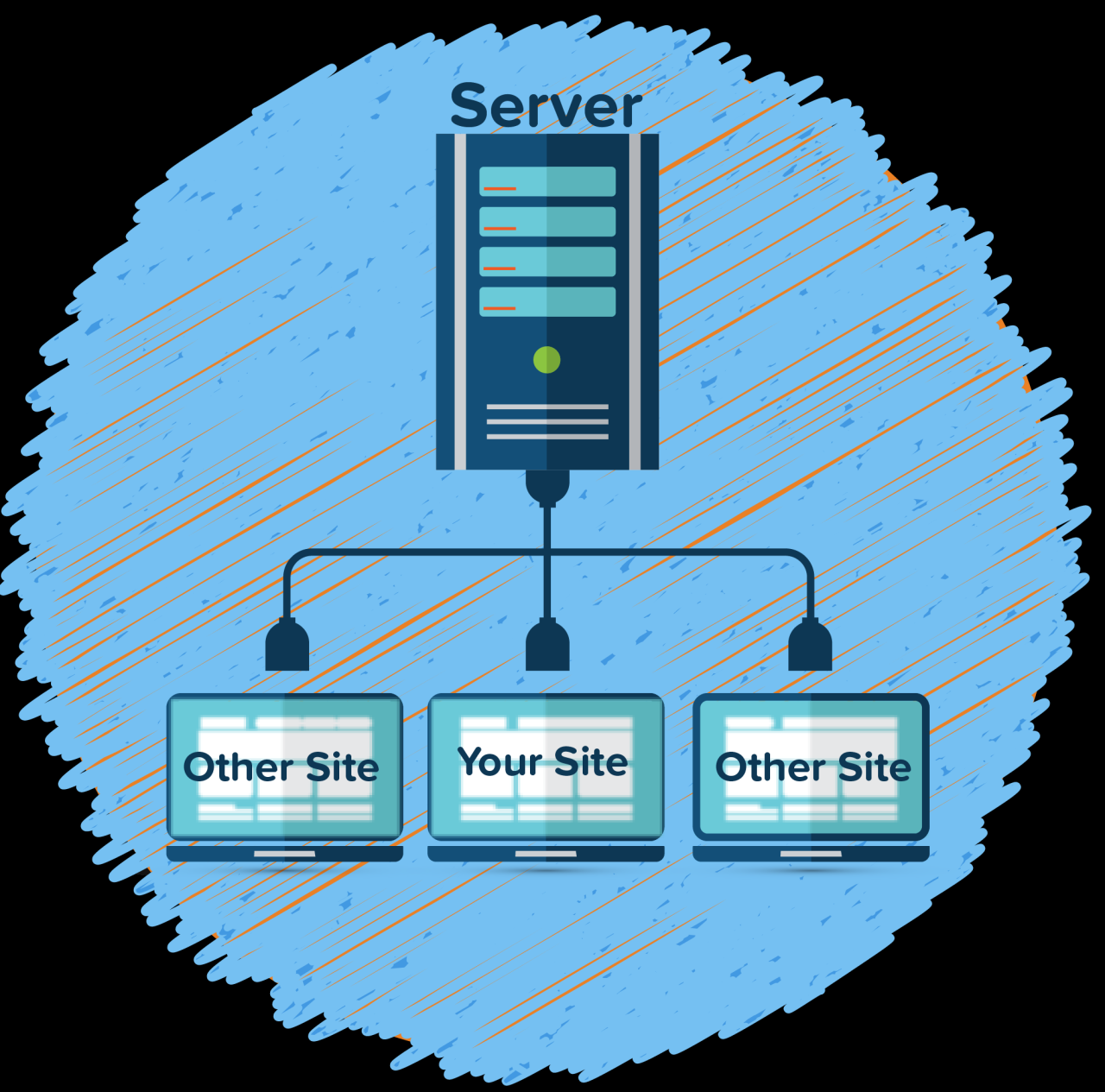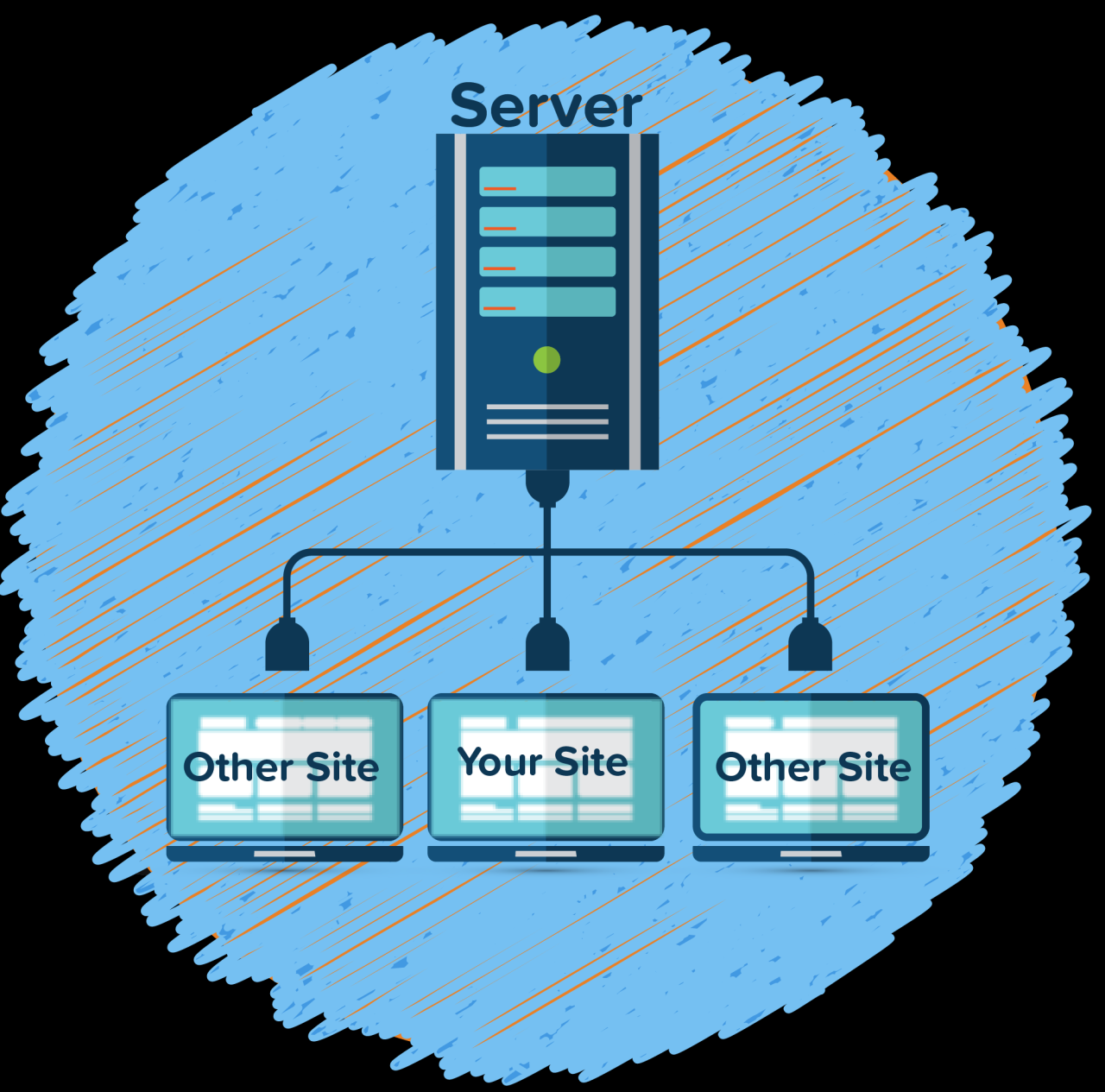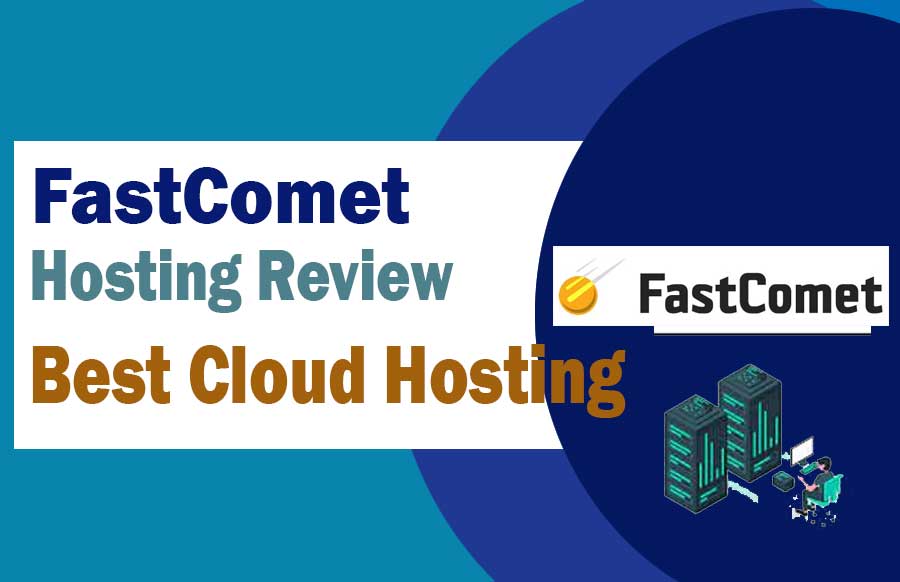Web hosting service providers are the unsung heroes of the internet, silently powering websites and applications around the world. From small personal blogs to massive e-commerce platforms, these providers offer the infrastructure and resources needed to bring online dreams to life. But with a vast array of options available, choosing the right web hosting service can feel overwhelming. This guide will explore the world of web hosting, demystifying its intricacies and empowering you to make informed decisions for your online endeavors.
This comprehensive guide will delve into the different types of web hosting, key features to consider, pricing models, and crucial factors for choosing the right provider. We’ll also discuss security, performance optimization, and emerging trends shaping the future of web hosting. Whether you’re a seasoned web developer or a first-time website owner, this guide will equip you with the knowledge to navigate the complexities of web hosting and ensure your online success.
Key Features of Web Hosting Services
Web hosting is the backbone of any website. It provides the necessary infrastructure to store your website files and make them accessible to users worldwide. Understanding the key features of web hosting is crucial for choosing the right plan for your needs.
Storage Space
Storage space refers to the amount of disk space allocated to your website. This determines how much data you can store, including website files, images, videos, and databases.
- Shared Hosting: Typically offers limited storage space, usually a few gigabytes. This is suitable for small websites with low traffic and data storage requirements.
- VPS Hosting: Provides more storage space than shared hosting, often ranging from 20GB to 100GB or more. This is ideal for websites with moderate traffic and data storage needs.
- Dedicated Hosting: Offers the most storage space, with dedicated servers providing ample room for large websites with extensive data requirements.
Bandwidth
Bandwidth refers to the amount of data that can be transferred between your server and users’ browsers. It’s essential for website speed and performance, especially for websites with high traffic and multimedia content.
- Shared Hosting: Usually offers limited bandwidth, which can affect website speed during peak traffic hours.
- VPS Hosting: Provides more bandwidth than shared hosting, allowing for smoother website performance even with moderate traffic.
- Dedicated Hosting: Offers unlimited bandwidth, ensuring consistent website speed and performance even with high traffic volumes.
Security
Security is paramount for protecting your website and user data from malicious attacks. Web hosting providers offer various security features, including:
- Firewalls: Act as a barrier to prevent unauthorized access to your website.
- Anti-malware Software: Scans for and removes malware from your website.
- SSL Certificates: Encrypt data transmitted between your website and users’ browsers, ensuring secure communication.
- Regular Backups: Create copies of your website data, allowing you to restore it in case of data loss.
Uptime
Uptime refers to the percentage of time your website is available and accessible to users. A high uptime is crucial for website performance and user experience.
- Shared Hosting: Typically offers a 99.9% uptime guarantee, which means your website may experience occasional downtime.
- VPS Hosting: Offers a higher uptime guarantee, often around 99.99%, minimizing downtime and ensuring website availability.
- Dedicated Hosting: Provides the highest uptime guarantee, usually 99.999%, ensuring maximum website availability and minimal downtime.
Web Hosting Costs and Pricing Models

Web hosting costs vary depending on the provider, the features offered, and the resources required. Understanding the different pricing models and factors influencing cost is crucial for choosing the right hosting plan for your website.
Pricing Models for Web Hosting
There are several pricing models for web hosting services, each catering to different needs and budgets. Here are some common models:
- Monthly Pricing: This is the most common pricing model, where you pay a fixed monthly fee for your hosting services. It offers flexibility as you can cancel your plan at any time.
- Annual Pricing: This model requires you to pay for a year of hosting upfront. While it may seem expensive initially, annual plans often come with discounts, making them more cost-effective in the long run.
- Biennial Pricing: Similar to annual pricing, this model involves paying for two years of hosting upfront. It often comes with significant discounts and is ideal for long-term commitments.
- Pay-as-you-go Pricing: This model allows you to pay only for the resources you use, making it suitable for websites with fluctuating traffic or resource requirements. However, it can be more expensive in the long run if your website experiences consistent high traffic.
Factors Influencing Web Hosting Costs
Several factors influence the cost of web hosting services. Understanding these factors can help you choose a plan that aligns with your budget and website needs.
- Features: The features offered by a hosting provider significantly impact the cost. Features like unlimited storage, bandwidth, email accounts, and website builder tools can increase the price.
- Resources: The amount of resources you require, such as CPU, RAM, and disk space, also influences the cost. Websites with higher traffic or complex applications demand more resources, leading to higher hosting costs.
- Provider Reputation: Reputable hosting providers with a proven track record of reliability and customer support often charge higher prices. However, their services are typically worth the investment due to their high uptime, security, and performance.
- Location: The physical location of the hosting server can affect the cost. Servers located in countries with lower operating costs may offer more affordable hosting plans.
- Customer Support: The level of customer support provided by the hosting provider can also impact the price. Providers offering 24/7 support and dedicated account managers often charge higher fees.
Comparison of Web Hosting Plans
Here’s a table comparing the pricing plans of different web hosting providers, highlighting their key features and limitations:
| Provider | Plan Name | Price | Features | Limitations |
|---|---|---|---|---|
| GoDaddy | Economy | $5.99/month | 1 website, 100 GB storage, unlimited bandwidth, free domain for 1 year | Limited resources, basic features, no dedicated support |
| HostGator | Hatchling | $2.75/month | 1 website, 100 GB storage, unlimited bandwidth, free domain for 1 year | Limited features, no dedicated support, no advanced security features |
| Bluehost | Basic | $2.95/month | 1 website, 50 GB storage, unlimited bandwidth, free domain for 1 year | Limited features, no dedicated support, no advanced security features |
| SiteGround | StartUp | $3.95/month | 1 website, 10 GB storage, unlimited bandwidth, free domain for 1 year | Limited resources, no dedicated support, no advanced security features |
Choosing the Right Web Hosting Provider
Choosing the right web hosting provider is crucial for the success of your website. It’s not just about finding the cheapest option, but about finding a provider that meets your specific needs and helps your website grow.
Factors to Consider When Choosing a Web Hosting Provider
Selecting the right web hosting provider involves evaluating several factors that directly impact your website’s performance, security, and overall user experience. Here’s a breakdown of key considerations:
- Website Traffic: The amount of traffic your website receives is a critical factor. High-traffic websites require robust hosting plans with ample resources to handle the load. Consider factors like average daily visitors, peak traffic hours, and anticipated future growth.
- Resource Requirements: Different websites have different resource needs. Factors to consider include:
- Storage Space: This refers to the amount of disk space allocated for your website files, databases, and other content. The required storage depends on the size and type of content you host.
- Bandwidth: Bandwidth refers to the amount of data that can be transferred between your server and users’ browsers. Higher bandwidth is needed for websites with large files, streaming content, or high traffic volumes.
- CPU Power: The processing power of the server affects website speed and performance. Websites with complex scripts, databases, or demanding applications require more CPU power.
- RAM: Random Access Memory (RAM) is used for temporary data storage and processing. More RAM improves website responsiveness and performance, especially for dynamic websites or those with many concurrent users.
- Budget: Web hosting costs vary significantly based on the plan features, resources, and provider. It’s essential to balance your budget with your website’s needs. Consider factors like:
- Monthly or Annual Costs: Some providers offer discounts for annual payments, while others charge monthly fees. Compare pricing structures to determine the most cost-effective option for your budget.
- Hidden Fees: Be aware of potential hidden fees such as domain registration, SSL certificates, or additional features. Read the terms of service carefully to avoid surprises.
- Scalability: As your website grows, you may need to upgrade your hosting plan. Choose a provider that offers flexible and affordable scaling options to accommodate future growth without significant cost increases.
- Customer Support: Reliable customer support is crucial, especially for technical issues or emergencies. Look for providers that offer:
- 24/7 Availability: Ensure customer support is available around the clock to address issues promptly.
- Multiple Support Channels: Choose a provider that offers various support channels, such as live chat, email, phone, and ticketing systems.
- Knowledge Base and Documentation: A comprehensive knowledge base and documentation can help you troubleshoot common issues independently.
- Security: Website security is paramount. Choose a provider that offers:
- SSL Certificates: An SSL certificate encrypts data transmitted between your website and visitors, ensuring secure communication and protecting sensitive information.
- Regular Backups: Data backups are crucial for recovering lost data in case of a security breach, server failure, or accidental deletion.
- Firewall Protection: A firewall acts as a barrier to protect your website from malicious attacks and unauthorized access.
- Malware Scanning: Regular malware scans help identify and remove malicious software that can compromise your website’s security.
- Features and Tools: Consider the features and tools offered by different providers to determine if they meet your specific needs. Some common features include:
- Website Builder: A website builder allows you to create and manage your website without coding knowledge.
- Email Accounts: Web hosting typically includes email accounts for your domain.
- Database Support: Database support is essential for dynamic websites and applications.
- Content Management System (CMS) Support: If you plan to use a CMS like WordPress, choose a provider that offers seamless CMS integration and support.
- Performance and Reliability: Choose a provider with a proven track record of performance and reliability. Consider factors like:
- Server Uptime: Server uptime refers to the percentage of time your server is operational. Look for providers with high uptime guarantees (typically 99.9% or higher).
- Server Location: The server location can impact website loading speed for visitors in different geographical regions. Choose a provider with servers located near your target audience.
- Speed Tests and Reviews: Check independent speed tests and user reviews to assess the provider’s performance and reliability.
Recommended Web Hosting Providers
Based on different needs and preferences, here are some reputable web hosting providers:
- For Shared Hosting: Shared hosting is a cost-effective option for basic websites with low traffic. Some popular shared hosting providers include:
- HostGator: Known for its affordable pricing and user-friendly interface.
- Bluehost: A popular choice for WordPress websites, offering reliable performance and good customer support.
- GoDaddy: A well-established provider with a wide range of hosting options, including shared hosting.
- For VPS Hosting: VPS hosting offers more resources and control than shared hosting, suitable for websites with moderate traffic or specific resource requirements. Recommended VPS hosting providers include:
- DigitalOcean: Known for its developer-friendly platform and affordable pricing.
- Linode: Offers high-performance servers with excellent uptime and support.
- Vultr: Provides a wide range of server locations and flexible pricing options.
- For Dedicated Hosting: Dedicated hosting provides exclusive access to a server, ideal for high-traffic websites or those with demanding resource needs. Some reputable dedicated hosting providers include:
- Rackspace: Known for its enterprise-grade hosting solutions and exceptional customer support.
- Liquid Web: Offers managed hosting services with a focus on performance and security.
- Hostwinds: Provides a wide range of dedicated server options at competitive prices.
- For WordPress Hosting: WordPress hosting is optimized for WordPress websites, offering enhanced performance and security. Recommended WordPress hosting providers include:
- WP Engine: A leading managed WordPress hosting provider with a focus on performance and security.
- Flywheel: Offers a user-friendly platform and a wide range of features for WordPress developers and agencies.
- Kinsta: Known for its high-performance servers and excellent customer support.
Choosing the Right Web Hosting Provider: A Step-by-Step Guide, Web hosting service provider
- Define Your Website Needs: Start by understanding your website’s requirements, including traffic volume, resource needs, and specific features.
- Set a Budget: Determine your budget for web hosting and consider the long-term costs, including potential upgrades or additional features.
- Research and Compare Providers: Explore different web hosting providers and compare their features, pricing, customer support, and performance.
- Read Reviews and Testimonials: Check independent reviews and testimonials from other users to gauge the provider’s reputation and customer satisfaction.
- Consider Trial Periods or Money-Back Guarantees: Some providers offer trial periods or money-back guarantees to allow you to test their services before committing to a long-term plan.
- Contact Customer Support: Reach out to customer support to ask questions and assess their responsiveness and helpfulness.
- Make an Informed Decision: Based on your research and evaluation, choose a web hosting provider that best meets your website’s needs and budget.
Final Conclusion: Web Hosting Service Provider

Ultimately, the journey to finding the perfect web hosting service is a personalized one. By understanding the various types of hosting, key features, and pricing models, you can make an informed decision that aligns with your specific website needs and budget. Remember, a reliable and efficient web hosting provider is essential for a successful online presence, so invest wisely and embark on your digital journey with confidence.





